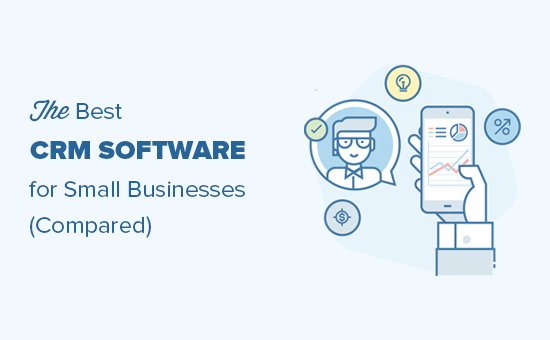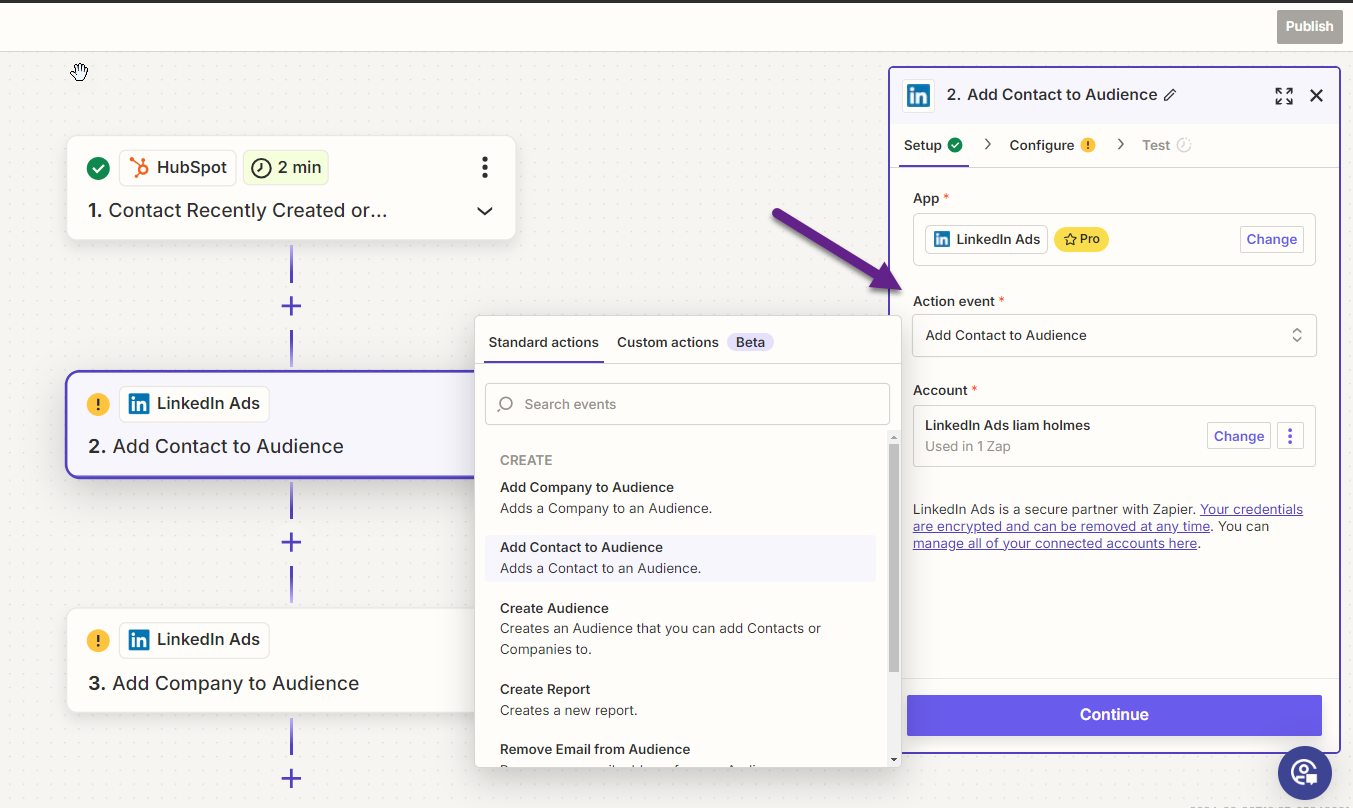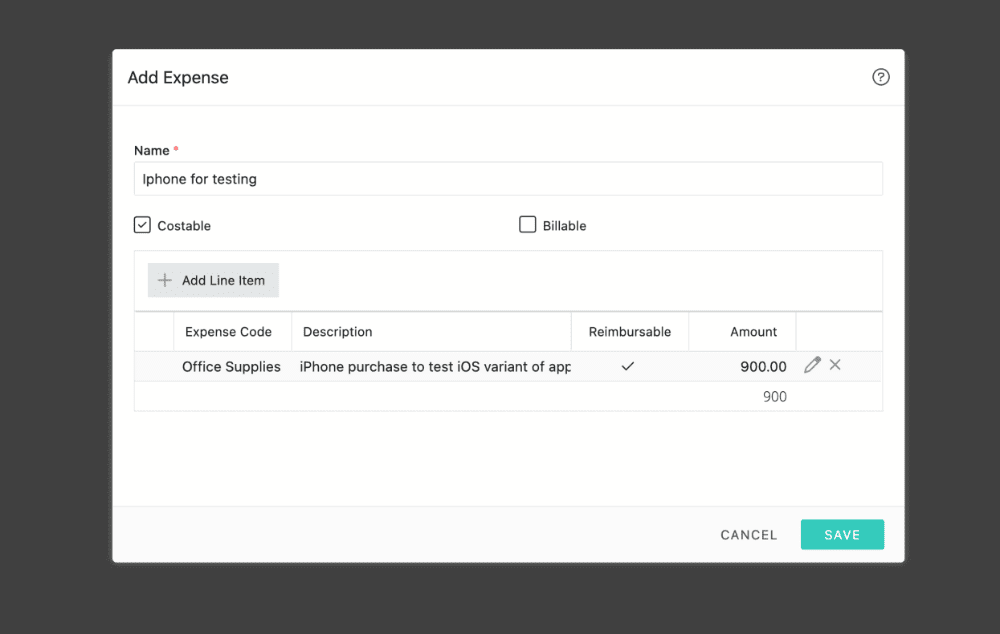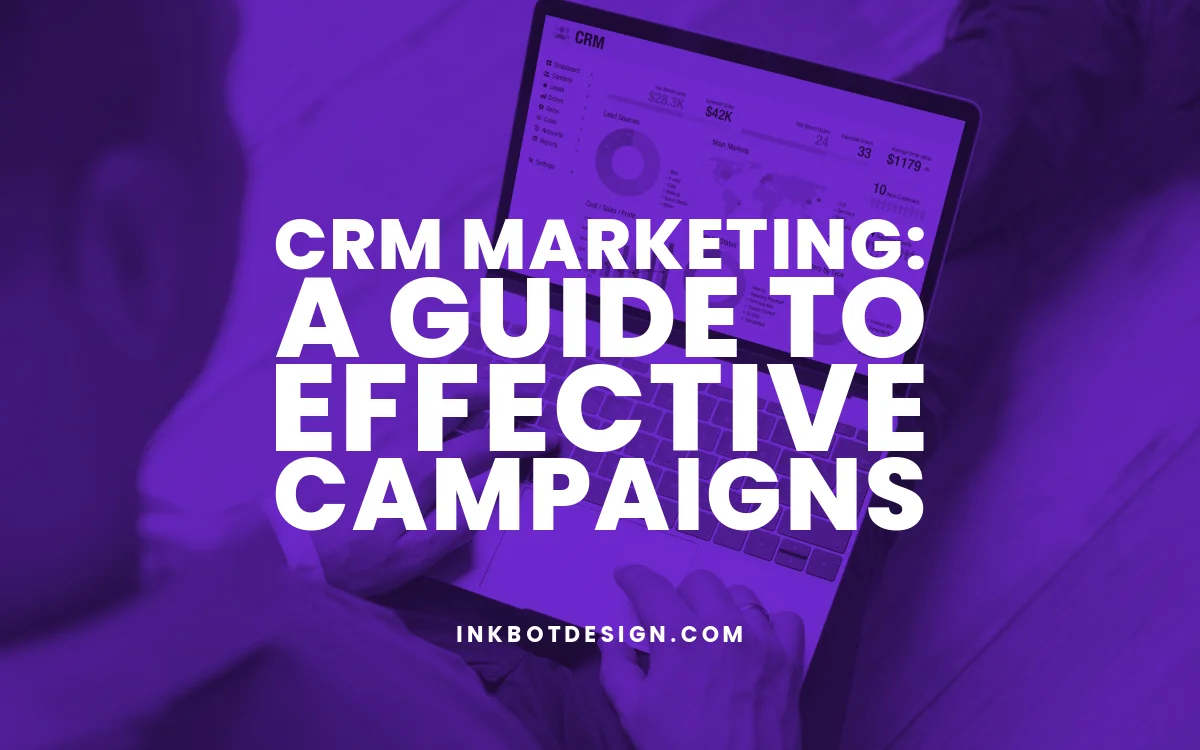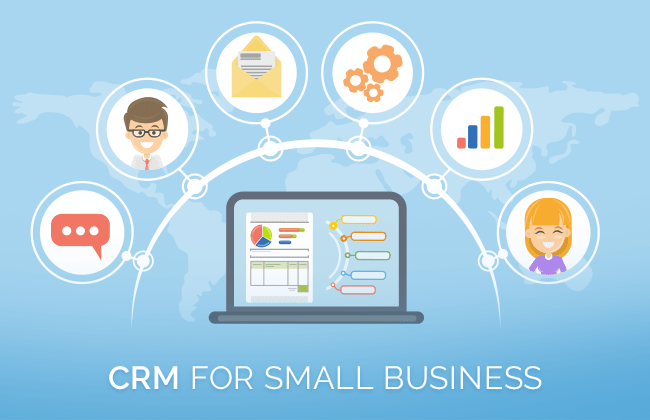Small Business CRM Updates 2025: What to Expect and How to Prepare
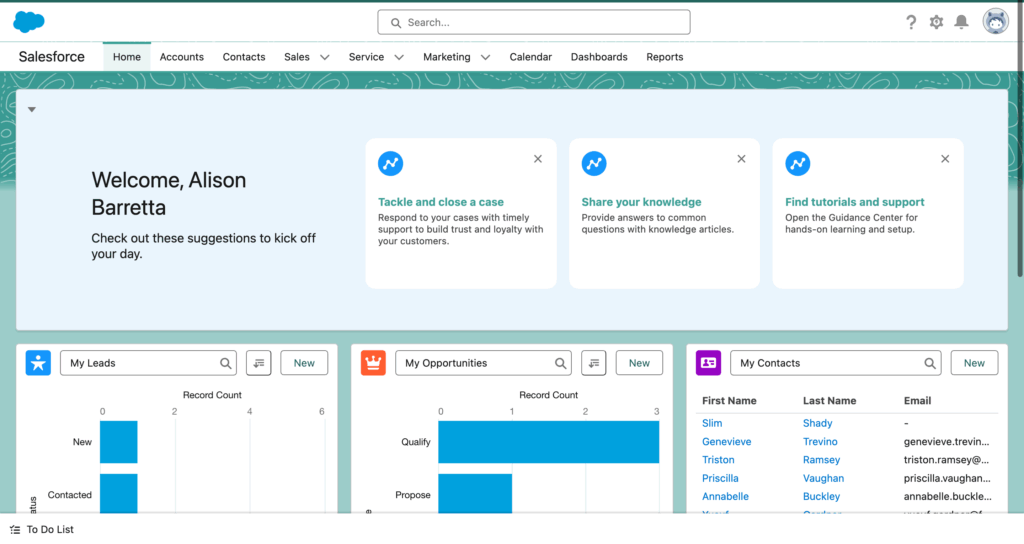
Small Business CRM Updates 2025: Navigating the Future of Customer Relationships
The world of customer relationship management (CRM) is constantly evolving, and small businesses need to stay ahead of the curve. As we approach 2025, significant updates and advancements are on the horizon, promising to reshape how companies interact with their customers. This article delves into the anticipated small business CRM updates in 2025, offering insights, actionable advice, and a roadmap to help you prepare your business for success. We’ll explore key trends, technological advancements, and practical strategies to optimize your CRM strategy.
Understanding the Importance of CRM for Small Businesses
Before we dive into the future, let’s underscore the importance of CRM for small businesses. In a competitive landscape, building and maintaining strong customer relationships is paramount. A well-implemented CRM system serves as the backbone of this effort, enabling you to:
- Centralize Customer Data: Consolidate all customer information in one accessible location.
- Improve Customer Interactions: Provide personalized and efficient customer service.
- Streamline Sales Processes: Automate tasks and track sales performance.
- Enhance Marketing Campaigns: Target the right customers with the right messages.
- Boost Customer Loyalty: Foster long-term relationships and increase retention.
For small businesses, CRM isn’t just a luxury; it’s a necessity. It levels the playing field, allowing you to compete with larger organizations by leveraging technology to improve customer experiences.
Key Trends Shaping Small Business CRM in 2025
Several key trends are poised to transform the CRM landscape for small businesses by 2025. Understanding these trends is crucial for making informed decisions about your CRM strategy.
1. Artificial Intelligence (AI) and Machine Learning (ML) Integration
AI and ML are no longer futuristic concepts; they are integral parts of modern CRM systems. In 2025, we can expect even deeper integration of AI and ML, offering:
- Predictive Analytics: AI will analyze customer data to predict future behaviors, allowing you to anticipate needs and proactively offer solutions.
- Automated Tasks: ML will automate routine tasks like data entry, email responses, and lead scoring, freeing up your team to focus on more strategic initiatives.
- Personalized Customer Experiences: AI-powered chatbots and virtual assistants will provide instant support and tailored recommendations, enhancing customer satisfaction.
- Improved Sales Forecasting: ML algorithms will analyze historical sales data to provide more accurate sales forecasts, enabling better resource allocation.
Small businesses that embrace AI and ML will gain a significant competitive advantage, offering superior customer experiences and making data-driven decisions.
2. Hyper-Personalization
Customers increasingly expect personalized experiences. In 2025, hyper-personalization will be a core CRM capability. This involves:
- Real-time Data Analysis: CRM systems will analyze real-time customer data to understand preferences, behaviors, and needs.
- Dynamic Content Delivery: Websites, emails, and other communication channels will dynamically adjust content based on individual customer profiles.
- Proactive Engagement: CRM systems will proactively reach out to customers with relevant offers and information at the right time.
- Personalized Recommendations: AI-powered recommendation engines will suggest products, services, and content tailored to each customer’s interests.
Hyper-personalization fosters deeper customer connections and increases conversion rates. Small businesses that master this will build stronger brand loyalty and drive revenue growth.
3. Enhanced Mobile CRM Capabilities
Mobile CRM is already essential, and its importance will only grow. In 2025, expect:
- Improved Mobile User Interfaces: More intuitive and user-friendly mobile apps will streamline CRM access on the go.
- Offline Functionality: Access to critical data and functionalities, even without an internet connection.
- Mobile-First Design: CRM systems will prioritize mobile access, ensuring optimal performance on smartphones and tablets.
- Location-Based Services: Integration with GPS and location data to offer context-aware services and personalized experiences.
Mobile CRM empowers sales teams to stay connected with customers, manage their pipelines, and close deals from anywhere, at any time.
4. Increased Focus on Data Privacy and Security
With growing concerns about data breaches and privacy regulations, security will be paramount. In 2025, expect CRM systems to prioritize:
- Advanced Encryption: Robust encryption methods to protect sensitive customer data.
- Compliance with Data Privacy Regulations: Adherence to GDPR, CCPA, and other relevant regulations.
- Two-Factor Authentication: Enhanced security measures to prevent unauthorized access.
- Transparent Data Practices: Clear communication about data collection, usage, and storage policies.
Small businesses must choose CRM systems that prioritize data security and privacy to build trust with their customers and avoid legal ramifications.
5. Integration with Emerging Technologies
CRM systems will seamlessly integrate with emerging technologies, including:
- IoT (Internet of Things): Connecting with smart devices to gather customer data and personalize experiences.
- Blockchain: Securely storing customer data and tracking transactions.
- Voice Assistants: Integrating with voice assistants like Alexa and Google Assistant for hands-free CRM access.
- Virtual and Augmented Reality: Providing immersive customer experiences and virtual product demonstrations.
These integrations will expand the capabilities of CRM systems, providing small businesses with new ways to engage with customers.
Specific CRM Updates to Anticipate in 2025
Beyond general trends, specific features and updates are on the horizon for small business CRM systems:
1. Enhanced Customer Service Automation
Automated customer service will become even more sophisticated, with:
- AI-Powered Chatbots: More intelligent and capable chatbots to handle complex inquiries and provide personalized support.
- Automated Ticket Routing: AI-driven systems to automatically route customer support tickets to the most appropriate agents.
- Self-Service Portals: More robust self-service portals with comprehensive knowledge bases and FAQs.
- Proactive Support: CRM systems will proactively identify and address customer issues before they escalate.
These enhancements will free up customer service agents to focus on complex issues and improve customer satisfaction.
2. Advanced Sales Automation
Sales automation will reach new levels of efficiency, with:
- AI-Driven Lead Scoring: Accurate lead scoring to prioritize the most promising leads.
- Automated Sales Sequences: Pre-built sales sequences to nurture leads and guide them through the sales funnel.
- Automated Proposal Generation: Tools to automatically generate sales proposals based on customer needs.
- Sales Performance Analytics: Advanced analytics to track sales performance and identify areas for improvement.
Sales automation will empower sales teams to close more deals and increase revenue.
3. Improved Marketing Automation
Marketing automation will become more personalized and effective, with:
- Behavior-Based Email Marketing: Triggering emails based on customer behavior, such as website visits or product views.
- Personalized Landing Pages: Dynamic landing pages that adapt to individual customer profiles.
- Multi-Channel Marketing Automation: Coordinating marketing efforts across multiple channels, including email, social media, and SMS.
- Marketing Campaign Analytics: Detailed analytics to track campaign performance and optimize marketing spend.
Marketing automation will enable small businesses to reach the right customers with the right messages at the right time.
4. Streamlined Integrations
Expect seamless integration with other business tools, including:
- Accounting Software: Integration with accounting software like QuickBooks and Xero.
- E-commerce Platforms: Integration with e-commerce platforms like Shopify and WooCommerce.
- Social Media Platforms: Integration with social media platforms for social listening and engagement.
- Collaboration Tools: Integration with collaboration tools like Slack and Microsoft Teams.
These integrations will streamline workflows and improve data consistency across all business operations.
How to Prepare Your Small Business CRM Strategy for 2025
Preparing for the future of CRM requires a proactive approach. Here’s how to get ready for the changes ahead:
1. Evaluate Your Current CRM System
Assess your current CRM system to identify its strengths and weaknesses. Consider:
- Functionality: Does it meet your current needs?
- Ease of Use: Is it user-friendly and intuitive?
- Integration Capabilities: Does it integrate with other business tools?
- Scalability: Can it accommodate future growth?
- Cost: Is it cost-effective?
Identifying areas for improvement will help you make informed decisions about future upgrades or replacements.
2. Define Your CRM Goals and Objectives
Clearly define your CRM goals and objectives. What do you want to achieve with your CRM system? Consider:
- Increased Sales: How can CRM help you close more deals?
- Improved Customer Satisfaction: How can CRM enhance the customer experience?
- Enhanced Customer Retention: How can CRM foster customer loyalty?
- Streamlined Processes: How can CRM automate tasks and improve efficiency?
Having clear goals will guide your CRM strategy and help you measure its success.
3. Research and Choose the Right CRM System
Research and compare different CRM systems. Consider:
- Features: Does it offer the features you need?
- Pricing: Is it affordable?
- Scalability: Can it grow with your business?
- Integrations: Does it integrate with your existing tools?
- Reviews: What do other users say about it?
Choose a CRM system that aligns with your business needs and future goals.
4. Train Your Team
Invest in training to ensure your team can effectively use the CRM system. Provide training on:
- Basic CRM Functionality: How to navigate the system and use its core features.
- Sales Processes: How to use the CRM to manage the sales pipeline.
- Customer Service Procedures: How to use the CRM to provide excellent customer service.
- Data Entry and Management: How to enter and manage customer data accurately.
Well-trained employees will be more productive and efficient.
5. Implement a Data Migration Strategy
If you’re switching CRM systems, develop a data migration strategy. This includes:
- Data Cleansing: Cleaning up and organizing your existing data.
- Data Mapping: Mapping data fields from your old system to your new system.
- Data Migration: Transferring your data to the new system.
- Data Validation: Verifying that your data has been migrated correctly.
A well-executed data migration will ensure a smooth transition and minimize data loss.
6. Stay Updated on Industry Trends
The CRM landscape is constantly changing. Stay informed about the latest trends, technologies, and updates by:
- Reading Industry Blogs and Publications: Follow industry experts and publications.
- Attending Webinars and Conferences: Learn from industry leaders and network with peers.
- Participating in Online Communities: Engage in online forums and communities to share knowledge and best practices.
- Following CRM Vendors: Stay up-to-date on the latest product updates and features.
Staying informed will help you make informed decisions about your CRM strategy and ensure you’re prepared for the future.
Choosing the Right CRM for Your Small Business in 2025
Selecting the right CRM system is crucial for success. Here are some popular CRM options for small businesses, along with their strengths:
1. HubSpot CRM
HubSpot CRM is a popular choice for small businesses due to its user-friendliness, free plan, and comprehensive features. It offers:
- Contact Management: Centralized contact management and organization.
- Sales Pipeline Management: Visual sales pipeline to track deals.
- Marketing Automation: Basic marketing automation features.
- Reporting and Analytics: Reporting and analytics tools to track performance.
- Integrations: Integrations with various business tools.
HubSpot CRM is an excellent option for small businesses looking for a free or affordable CRM with a wide range of features.
2. Zoho CRM
Zoho CRM is another strong contender, offering a robust set of features at a competitive price point. Key features include:
- Sales Force Automation: Automate sales tasks and track sales performance.
- Marketing Automation: Advanced marketing automation features.
- Customer Service: Customer service tools to manage support tickets.
- Customization: Highly customizable to fit specific business needs.
- Integrations: Extensive integrations with other Zoho apps and third-party tools.
Zoho CRM is a good choice for small businesses that need a feature-rich CRM with advanced customization options.
3. Salesforce Sales Cloud
Salesforce Sales Cloud is a leading CRM solution for businesses of all sizes. While it can be more complex, it offers powerful features and scalability. Key features include:
- Sales Force Automation: Comprehensive sales force automation features.
- Marketing Automation: Advanced marketing automation capabilities.
- Customer Service: Robust customer service tools.
- Analytics and Reporting: Powerful reporting and analytics.
- AppExchange: Access to a vast ecosystem of apps and integrations.
Salesforce Sales Cloud is a good option for small businesses that need a powerful, scalable CRM solution and are willing to invest in the learning curve.
4. Pipedrive
Pipedrive is designed with sales teams in mind, focusing on visual sales pipeline management and ease of use. Key features include:
- Visual Sales Pipeline: Intuitive visual pipeline to track deals.
- Activity Tracking: Track sales activities and stay organized.
- Automation: Automate repetitive tasks and streamline workflows.
- Reporting: Simple and effective reporting tools.
- Integrations: Integrations with popular business tools.
Pipedrive is an excellent choice for small businesses that prioritize a visually appealing and easy-to-use CRM for sales teams.
5. Freshsales (Freshworks CRM)
Freshsales, now known as Freshworks CRM, provides a user-friendly interface and a focus on sales and customer support. Key features include:
- Built-in Phone and Email: Seamless communication tools.
- Sales Automation: Automate sales tasks and streamline workflows.
- Lead Scoring: Prioritize leads based on their behavior and engagement.
- Reporting and Analytics: Detailed reporting to track sales performance.
- Integrations: Integrations with various business tools.
Freshsales is a great option for small businesses looking for an all-in-one CRM with built-in communication tools.
The Future is Now: Embracing CRM Updates for Small Business Success
The small business landscape is becoming increasingly customer-centric, and CRM is the cornerstone of building strong customer relationships. By embracing the anticipated CRM updates in 2025, you can position your business for success. This means staying informed about industry trends, choosing the right CRM system, training your team, and continually optimizing your CRM strategy. The future of CRM is about personalization, automation, and data-driven decision-making. By preparing now, you can leverage these advancements to gain a competitive edge, enhance customer experiences, and drive sustainable growth. Don’t wait – start planning your CRM strategy for 2025 today!

